By Cemil Ozansü, PhD *
“The phrase of “Cold War” was invented by George Orwell. Orwell, already in 1945, immediately after the establishment of the new world order, realized that this form of war avoided physical altercation. Indeed, the 1945 order is successful given its intention.”
Law is an invention, which aims to regulate the state of conflict, not a miraculous concept that would transform the world into a paradise. In other words, law is a technique of reconciliation “by any means necessary” between conflicting and contradicting subjects, without succumbing to the “eternal negativity” of pure violence. Due to the affinity of law to the concept of conflict, the changes in conflict’s form and content are translated in the form and content of the law as well. And, owing to this feature, law, as a type of general state of peace, is a category of order, both temporally and spatially. After this reminder on fundamentals, let us move to the essence of the issue at hand.
Centuries commence and conclude with wars. The 19th Century commenced with the Congress of Vienna (1815), which set up the legal order of the aftermath of the French Revolution and Napoleonic Wars. The phrase of juste milieu best describes the 19th century’s fundamental legal epitome, which relies on the idea of equilibrium between multiple subjects. This reference to a fair average, to a normal, hence to normativity, in turn became the fundamental tenet of the 19th century liberalism’s middle of the way politics. During this period, internal legal developments focused on the establishment of parliamentarism, emergence of constitutionalist currents as nation making activities, constitutionalization of state of emergencies as exceptional forms of government, birth of the idea of a neutral legality. At the international level, on the other hand, the concern was to supersede the anomalism, which was caused by the revolutionary militancy of the French Revolution and to reestablish the ancién regime with a bourgeois content. This effort, ius in bello, aimed at determining under which restrictions the states, which had the monopoly of right to war-making (ius ad bellum), could execute this right.
This period does not need a theorem of “just war.” Waging war is a right of the state, and exercise of war – particularly in the European continent – is regulated. In line with the epoch’s liberal intellectual course, neutrality as a concept, which would prevent a total bloodshed among people, emerged in this period. Furthermore, “international law” reaches beyond the continental Europe. Non-European nations also enter this club of sovereigns as a result of an apollonian deliberation, which accepts the sovereign state as an equal subject, even theoretically (such recognition of Turkey took place following the Crimean War). In the international law history, this era is called “the British Era”. It has been asserted that international law achieved “a positive content” thanks to its normative productivity; the practice of multiple parties signing conventions on a variety of issues (the legal theoretical discussion on whether international law is a static discipline of law, where there is no superior third-party gain momentum during this era).
The year of 1918, on the other hand, concludes the 19th and commences the 20th century. However, this time there was a significant politico-historical change and an important change in legal thinking. The first reflection of this was the emergence of a “workers-state” in lieu of the collapse of the traditional state of Czardom. This new structure completely flipped the 19th century concepts of normality, neutrality and impartial legality on their head and presented a “militant” characteristic similar to the one, which emerged during the French Revolution. This new structure’s political aspirations regarding world revolution (ComIntern, which was built as an international, revolutionary and centralized political party) blurred the existing boundaries between internal and external politics (Notwithstanding the withering of ComIntern from a revolutionary organization to a state apparatus, the existence of the USSR –along with the US– deeply influenced the 20th century and its legal thinking).
Second important development was a legal novelty, which was an addendum to the Treaty of Versailles and declared the German Kaiser Wilhelm a war criminal. This new legal structure opened a way for war-making, formerly a fundamental right of the states, to be criminalized at the hands of the victors. Thus, law adopts a new political content. This was the first step not only toward the corrosion of war as a legal category, but also for interfering in the internal affairs of the sovereign. Yet, the trial of Kaiser Wilhelm was not followed through, largely due to the presence of the “Bolshevik threat” and the European states’ unwillingness caused by their reservation toward this new legal import from the United States.
In fact, Europe entered “a new civil war” immediately after the end of the World War I (see, Trotskyite historian Enzo Traverso’s bulls-eye description: “1914-1945 European Civil War”). This civil war with three blocks of liberal, fascist and communist factions, immediately after the end of the preliminary conflict era in Spain, transformed into an “external war” first between liberal and fascist camps (1939), and then between fascist and communist camps (1941). Intertwined with civil wars, this external war led to the emergence of partisan type new political militant groups within or along the usual national armies (all blocs housed an “international brigade” as well). The scrimmage, which began as a classical battling form via regular armies, led to the emergence of guerrilla forms and opposing counter-guerilla forms of fighting, particularly on the “Eastern front.” Wehrmacht, which entered the war as a regular Prussian army, left the war eventually, defeated but with some of its troops already factionalized like partisans. The victors of these civil-external wars would subsequently establish the new order.
Demilitarization and Denazification
Our world’s current legal forms rely on “the 1945 order.” The 1945 order is a legal system, which was established by two major non-European powers, the United States and the USSR. Within this “new world order,” liberal and communist blocs, who prevailed over the fascist one, violated a fundamental international legal principle of the previous order: they terminated the legal presence of the losing German Reich, abolished its sovereignty. Thus, they invented a novel legal form and content (occupatio sui generis). This is the fundamental principle of the 1945 order. A state’s right to sovereignty through its statehood ceases to exist, because it became an instigator of warfare after falling into the hands of fascists. They would not contract peace with the German Reich. Thus, as it is common in the history of law; a state of exception, once again resulted in the establishment of a state of normalcy. One should remember that the UN Charter’s current Articles 53 and 107 mention “enemy states” (while law literature claims that these articles are obsolete, AfD, the new party of the German parliament with fascist orientation, demanded the German government to push for the removal of “the enemy states” clauses from the UN Charter.
Languishment of sovereignty and demilitarization did not suffice; the victors also intervened in the internal affairs of the defeated and occupied Germany and screened the state bureaucracy. Nazis were ousted from the bureaucracy; that is denazification. Within the Soviet sector, this was accomplished to the fullest, whereas among the Western sectors, the ever-decreasing enthusiasm for denazification ended with the amnesties in 1953 and 1956. United States, who believed that these cadres with the experience of fighting against the USSR would be useful during the cold war, chose to win these individuals to the future counter-guerilla organizations around Europe. The presence of Germany’s founding chancellor Konrad Adenauer’s undersecretary and éminence grise, Hans Globke (An administrative Lawyer, who prepared the infamous 1934 Race Laws) reveals the sincerity of West Germany and the US toward denazification.
Cold War
George Orwell invented the term “Cold War.” Orwell, already in 1945, immediately after the establishment of the new world order, realized that this form of war avoided physical altercation. Indeed, the 1945 order is successful given this intention. The thirteen-day long Cuban Missile Crises (1962, “October Crisis” according to Cubans, 1962) was the closest moment to a large-scale physical conflict. It also resulted with a state of equilibrium, thanks to the presence of nuclear missiles. In exchange for a Cuba, which would not threaten the US and is only capable of defending itself, the old foreign affairs principle of Monroe Doctrine was relaxed but maintained in principle (Monroe Doctrine dates back to President Monroe’s 1823 Address to Congress declared the Americas under the sole political influence of United States and held any political intervention in the affairs of Americas as a potentially hostile act against the US). In other words, turning it into a defense state contained Cuba’s threat and the Americas stayed as the “backyard” of the US.
Moreover, the United Nations General Council as a “nations’ parliament” expanded particularly after the independence movements boom of the 1960s. These national independence movements – supported in principle by the USSR and partly by the US – led to the emergence of a vast number of new “sovereign” states. These countries belonged to the one of the Eastern or Western areas of influence but the equilibrium in Europe remained intact. In other words, it was impossible for the French or Italian communist parties to rise to the power; neither the USSR nor the US would want that. In a similar vein, “the sovereign” Czechoslovakia or Hungary could not change sides, either. These are the 1945 order’s buffer, yet not impartial countries. However, the 1945 order’s inventions of international legal forms are merely functional. USSR consistently conformed to UN Charter’s ban on use of force, even if it maintained Leninism inspired the dichotomy of just war / unjust war, particularly when it comes to supporting national independence movements. In the meantime, international law also improved positively. A series of new treaties were finalized, new initiatives articulated universal values into an objective normativity under the banner of human rights law (there has always been a nuance between the capitalist and socialist interpretations of human rights). UN Security Council with five members with permanent veto capacity was largely in charge of the execution as a means of consensus (USSR would not again repeat the dire mistake of the leaving the table, as they did during the Korean War).
USSR’s withdrawal policy from Eastern Europe started in 1989, and eventually resulted in the collapse of the Soviet Union. This was the final nail in the coffin of the “internationalist” Soviet policy, which was the legacy of the socialist world revolution (USSR, even on its last breath, during the First Gulf War opposed a military march following the salvation of Kuwait, which in turn gave an additional 12 years of life to the divided state of Iraq). From this point on, the national sovereignties, which were previously achieved during the Cold-War thanks to the tensions between USSR and the US, became also under jeopardy. In practice, the 1945 order lost its “equilibrium.” Yet, despite the fact that a new world order seemed around the corner, new legal forms of this order were not articulated; and 1945 order formally would maintain its existence.
Interpretatio prudentium
Legal interpretation sometimes completely renders a rule obsolete, sometimes it adds new meanings to it. If the law is going to remain functional, i.e., serve as a mitigation to conflict and avoid going back to the phase of pure violence, the important notion here is that a new legal interpretation to achieve stability in practice, and common recognition in theory.
The first act, which claimed that it did not violate the UN Charter’s ban on use of force, yet did violate the ban objectively, was NATO’s military operation against Yugoslavia with the “humanitarian intervention” during the Kosovo War (1998-99). Without even being bothered to consult the UN Security Council at the time, the NATO member states insisted that this operation was an exception, and would not create precedence. However, the President of the united Germany, Ludger Volmer, voiced the following warning from the floor of the German parliament, after his country’s first engagement in a military operation on European soil since the end of the Second World War:
“Let’s not fool ourselves. The attempts of justification that this is an exception and this would not create precedence are baseless. In the future, any regional power with the goal of establishing order among their neighbors would refer to this example. The door is opened for military alliances to endow themselves authority. When a situation of veto would emerge, the Security Council, which might always be bypassed, would not be able to guarantee the UN’s monopoly of violence (16 October 1998, Bundestag).
“Humanitarian intervention” is the antecedent of the “preventive self-defense” concept of the post September 11 period. As an attempt to prevent genocide or crimes against humanity, “humane intervention” could be understood as a candor to capture the spirit of the 1945 order. In the end, under the 1945 order anti-fascist justifications would be legitimate. Interestingly, the acumen of German policy that I referred above would completely disappear following the 9/11 Doctrine and started expressing its hostility with ease. German Defense Ministry (Struck, 2004) would not hesitate to state, “Germany’s safety is now secured at the Hindu Kush Mountains.” This meant that Germany’s military presence in Afghanistan or United Kingdom’s military presence in its former colony Iraq was now possible. Compared to the “humane intervention” in Yugoslavia, “preventive self-defense” relies far more on military justifications. The straightforwardness of this new concept would swiftly make the exception the rule. Any legal expert competent in the history of law would realize and deduce that if separated from the notions of temporal and spatial proximity and proportionality, the concept of “self-defense” would recede to a very old conceptualization of itself; to “just war” (bellum iustum), which dates back to the Medieval legal systems. In this legal-political climate, sudden encounters with “crusades” and “evils” (G. W. Bush) should not come as a surprise to anyone.
What will happen now?
The motto of “Drang nach Osten” (Drive to the East) is a myth invented by the 19th century German nationalism. According to this maxim, Eastern Europe and today’s Ukraine is a region for “historical” expansion for the civilized German people of Europe at the expense of the barbarian Eastern Slavic people. The concept of Lebensraum (living space) was a political instrument of this motto, which was first coined in 1901 by a social Darwinist and political geographer F. Ratzel. This concept has long been in the vocabulary of the German imperialism, but the political realization of this concept only came after German fascists took the power (1933), and the military realization after the beginning of the Operation Barbarossa (1941).
The Second World War in Russia began in 1941 and is called the “Great Patriotic War.” In his address, which started the operation in Ukraine, Putin emphasized that he made a reference to the “Molotov-Ribbentrop Pact” and stated that they would not repeat the mistake of trusting such a pact. This is the clearest expression of how Moscow perceives the Eastern expansion policy of the EU and NATO. The announcement of Ukraine’s demilitarization and denazification as the political objective of the operation is a warning attempted to remind the foundational principles of the 1945 order. I already discussed the foundation of this warning above.
During the USSR’s dissolution in 1991, in addition to depriving it from nuclear weapons, it was agreed upon that Ukraine would remain as an impartial buffer country. It was long clear that the final paragraph of Ukrainian Constitution’s Article 17 is not an ordinary one. The paragraph “bans the installment of any foreign military bases on the Ukrainian soil” and is quintessential for Ukraine’s sovereignty. As NATO, above everything else is a military alliance and there is no doubt that like any military alliance and military force, it objectively threatens world peace.
“Negation of negation” (Hegel) is an important headway for understanding the current crisis. If the Yugoslavia, Afghanistan and Iraq are the examples of the first type of negation of the “1945 order,” Russia’s operation in Ukraine can be seen as a second type of negation. What differentiates the second type of negation from the first group is that the other founding subject of the “1945 order” conducts the latter. That is why Russia’s operational premises align with the phase of constituent violence of the 1945 order, i.e., demilitarization and denazification. Under the assumption of a political gain following the 1991 restoration, Western bloc failed to build a legal order; instead, it chose unilaterally imposing the above-mentioned “legal-interpretation” on the rest of world. In other words, in lieu of creating classical legal institutions and legal forms and execute them within a widely recognized universal order, the Western bloc invented a self-proclaimed cluster of “objective values” and asserted its validity. Arbitrary confinement of the “small sovereignties,” which were a legacy of the 1945 order, became the modus operandi of the post 1991 period. In short, with this arbitrariness, hidden in the motto of “unipolar world” announced in 1991, the owners of this motto drifted apart from establishing the validity of the “objective” values they concocted. Due to the systemic characteristic of law, this practical lack of authority creeped into domestic legal systems and weakened the reconciliatory functions of constitutions.
Due to atypical developments of their military-industrial complexes, certain nation states maintained their existence and resisted the aforementioned denationalization and deconstitutionalization processes. They were also successful in creating their own “regional areas of influences.” Yet this does not bode well with the Western bloc. Even if it cannot further capitalize on them, the Western Bloc is unwilling to abandon its 1991 “gains.” In fact, the path to current “solution” of the Ukrainian crisis reveals that the Western Bloc is willing to protect its own invention of first-type of negation at all costs. Europe (of course, Brexited Europe), would have been prone to accept an order of regional areas of influence. However, this new Europe left over from the end of the cold war appears to have lost this ideological capability. At this point, it is clear that Europe surrendered its will for decision making to NATO (Long gone is the moderate Eastern Policy started with Willy Brandt’s visit to Moscow two years after the USSR’s intervention to Czechoslovakia). Nonetheless, the current Ukrainian crisis might still lead to a constructive European mobilization.
In this situation, a truce might be achieved, which might delay a prospective destructive world war for a while (maybe for ten years) and which could establish a legal order. Because it would not be achieved as a result of a war, this order would be still based on the 1945 order (“World is greater than five” motto of 1991 is now outdated). Yet, in a multi-polar world of impartial buffer countries, this order would be revised through “regional areas of influence.” The UN organization might rapidly become a functional instrument of the new state of equilibrium. Some legal forms might be revitalized. Certainly, there is always the threat of a new great war, which would conclude this century. However, for now we should trust the rationality of humanity, which guided us to this point and we should trust that law (states) essentially is the ratio, and the conflict will remain as the ultima ratio (last reason/resort).
* Former Dr. Research Assistant, Istanbul University, Faculty of Law.
Translation: Taylan Acar







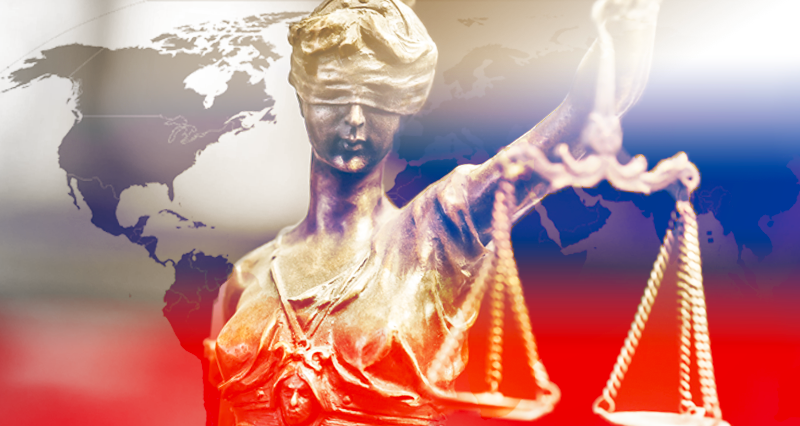
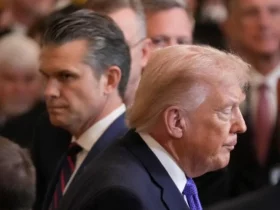
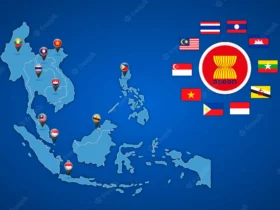
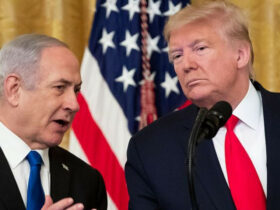


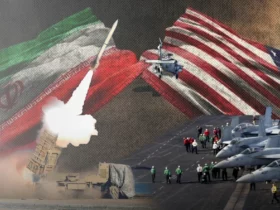



Leave a Reply